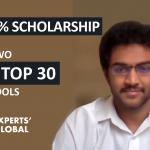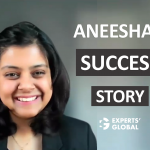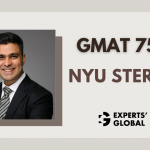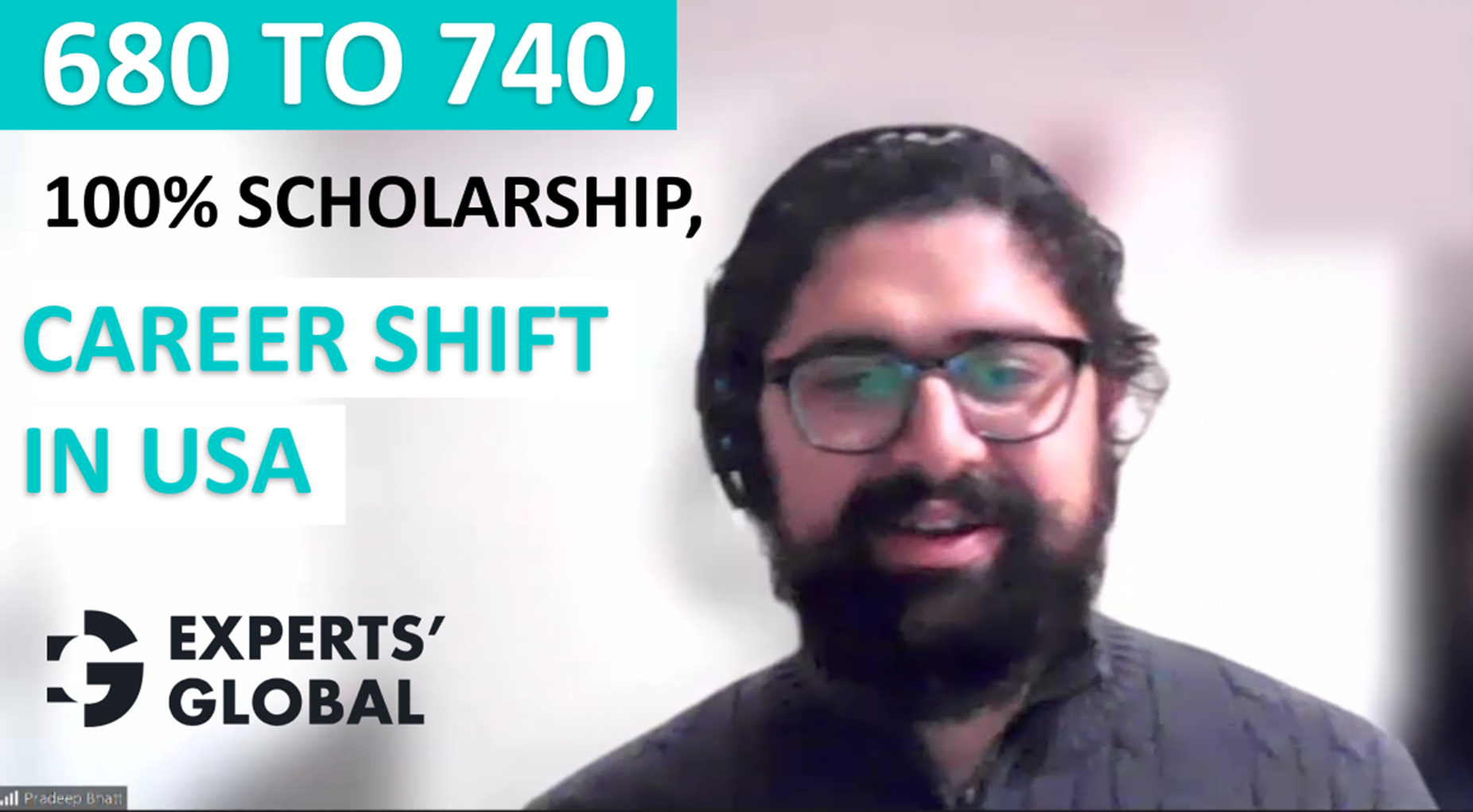Verbatim
Experts’ Global: Hi Deepak, thank you for interviewing with us! Could you kindly share your story in your own words?
Deepak: I have an undergrad background in computer science, and over my eleven-year career, prepped for the GMAT two separate times before deciding to take the MBA plunge in 2021. Reaching out to MBA admissions consultants Experts’ Global for their guidance, I followed a clear application strategy to secure my UCLA MBA admit.
Experts’ Global: In your opinion, what actions of yours made the difference in your success?
Deepak: The MBA application will consume three to six months of your life, so you need to be crystal clear on your reasons to pursue an MBA. Have a clear deadline for your GMAT prep in place. The best way to do that is to set the date for your actual GMAT as soon as you get into your study rhythm and have begun attempting GMAT mocks so that you can set a timeline for yourself. For working professionals, making time for GMAT prep can be a challenge, but it is a struggle that you must commit yourself to.
Experts’ Global: Looking back, what mistakes did you make along the way?
Deepak: The first mistake I made was taking a free GMAT mock, on the advice of my peers who had already cracked the GMAT, before I had even begun my studies. I got a lower score which lowered my confidence just as I was starting my studies. I also overcommitted to a study timeline that required me to set aside five hours daily to work on my GMAT aptitude. Since the timeline for your prep will generally vary between three to six months, you have to understand that variation from day to day is natural and unavoidable.
Experts’ Global: Regarding your GMAT preparation, what resources did you use and what advice do you have for future applicants?
Deepak: Since I had only four hours a day, at best, after work to study for the GMAT, I did not look around for too many resources to distribute my energies over. I used the Experts’ Global GMAT online preparation course on the recommendation of some of my peers who had benefited from the same as well. Setting a deadline by booking my GMAT around three months after my prep started helped me study with a sense of urgency.
When it comes to school shortlisting, research the respective cultures of the schools you are targeting and see if your profile fits them, to increase your admission chances and the benefits you reap from the MBA.
Experts’ Global: What would you say were your lessons from managing the application timeline?
Deepak: I mostly learned that applying in round one is not worth rushing your essays or your application material gathering process for and ending up with a suboptimal application. Make sure to be authentic in your essays and focus on humanizing yourself while also talking about your achievements.
In round one, try and apply mostly to your stretch schools, and relegate applications for more achievable schools to later admission rounds. This can give you more time to sort out your finances and take a call on what school to choose in case you get waitlisted at a more desirable school in the first round itself.
Experts’ Global: How was your interview experience with the business schools?
Deepak: My interview was more of a friendly conversation than anything else. The interviews for most MBAs are held by members of the student body, usually MBA students in their final year. The interview is about getting to know you with respect to your cultural location, professional history, and potential impact on the school community. A good thing is that most MBA interviewers try and make candidates feel more at ease because very often the interviewers have been in the candidate’s shoes themselves! Overall, if your MBA interview prep is in place, all you need to do is be personable.
Experts’ Global: What can you tell us about your MBA experience?
Deepak: The UCLA Anderson MBA begins in the summer, rather than in the fall like most other programs. This is mostly intended for international students to settle into a new culture, and for those interested in taking preliminary classes in accounting and such. When studies begin in full swing in the fall, second-year MBA students return to school from their internships, further increasing the size of their peer group. Most of the recruiting activity also happens at this time, and is targeted at the returning batch of second-years.
In my case, around the winter term, I had to wait a little bit to secure my first internship, but it did come through eventually. I also completed the majority of my coursework in the first year, to free myself up to build relationships and study electives directly relevant to my goal of entering product management. In terms of peer learning too, the MBA experience was mind-blowing!
Experts’ Global: How has your job search during the MBA been and what advice do you have for future students on the same?
Deepak: The job search during an MBA requires you to focus on individual, group, and advisor efforts. Individually, you need to start networking, Cultivate a good LinkedIn profile and start building relationships from the moment you decide to take the GMAT. Your school’s alumni base is something you need to tap as well, and can take you places. Further, you need to develop a resume that tells your story faithfully. The careers team at your school will have a strong process in place for the same.
From a group perspective, try to collaborate with friends in your class with similar goals, to motivate and help each other through mock interviews! Lastly, regarding having a good advisory group, try and build a rapport with the careers team at your school; they will often come to your aid, even in terms of counseling with stress.
Patience has to be a watchword. The MBA job hunt does not immediately yield results. I got my internship in the first week of March, and a couple of my friends actually got theirs in May or June!
Experts’ Global: How has your post-MBA journey been, and what lessons have you taken from the pre-application process and MBA immersion?
Deepak: My post-MBA journey started with my internship at Walmart, which I was able to later convert into a full-time role in product management. My internship experience helped me reflect on the utility of my classes and my learning gaps, and empowered me to build a profile worth employing. The internship in my first year allowed me to spend my second year solely on the full-time job hunt, with relevant experience to back me up.
The pre-application process, in particular, reinforced the need for determination. The duration between your decision to take the GMAT and your actual MBA admission success can be up to a year, and you need to have the perseverance to see it through.
Experts’ Global: According to you, what common mistakes should all GMAT aspirants avoid?
Deepak: Overthinking and overplanning can be detrimental. Setting timelines and milestones for oneself is crucial, but you also have to leave some flexibility for yourself, especially for working professionals. Try and set a GMAT date early on in your prep to give yourself some structure.
Experts’ Global: What is your final word to MBA aspirants out there?
Deepak: The GMAT is really not all that tough to crack. Try and reach out to a trusted counselor or coach for the test to get some external guidance in case you are confused about a plan of action yourself. Once you have a timeline in place, make sure that it allows you the leeway to change plans in case of exigencies, and do your best to stick to the said timeline.
Experts’ Global: Thank you for giving us your time today, Deepak!
Deepak: No worries!







